18 Views
2014 Volkswagen Tiguan TDI Review
by
Aaron Gold
(IC: employee)
Published: April 9th, 2014
Share
When Volkswagen offered us the chance to drive a European-market Tiguan with a diesel engine, we jumped at it. After all, automotive journalists are conditioned to love all things diesel.
LOVE IT
- Since the U.S.-spec Tiguan uses the same 200 horsepower, 207 lb-ft gasoline engine found in other VW cars, we expected to find the same 2.0-liter 140 horsepower/236 lb-ft diesel available in the Beetle, Golf, Jetta and Passat. Not so: While VW Europe does offer the 140 hp engine in the Tiguan, the one we drove had the souped-up version, rated at 174 horsepower and 280 lb-ft. Volkswagen offers a six-speed stick in Europe, but this particular Tiguan came with a seven-speed DSG twin-clutch transmission and 4Motion all-wheel drive.
- The Trade-Off
- Performance-wise, the diesel isn't far off the gas version: VW claims an 8.5 second 0-100 km/h (62 MPH) time for the Tiguan TDI we drove, versus a 0-60 time of 8.2 seconds for the US-spec Tiguan 2.0T 4Motion. As with most diesels, this one is a tad sluggish off the line, but that V8-like torque comes into play when you want to pass a truck on a narrow two-lane road. It's this mid-range torque that makes diesels a favorite among folks like us, but the Tiguan's excellent 2.0T gas engine is a hard act to follow. Like the diesel, it has a broad, flat torque curve that provides a lot of mid-range muscle. The diesel is more vocal at idle and low speeds than the gasoline engine (and a bit louder than other VW TDI models we've driven), but its metallic thrum fades away almost entirely at highway speeds.
- Big Bump in MPGs
- The diesel engine's real advantage is fuel economy. We averaged an impressive 32.3 MPG, about nine MPG better than what we're used to seeing in gasoline-powered Tiguans. And that was with mostly urban driving. Had we spent a bit more time at highway speeds, our average would probably have been higher.
- Of course, our observed fuel economy is hardly scientific, but differences between European and American test standards – as well as differences in the powertrains VW sells in Europe and America – make a precise comparison difficult, if not impossible. Be warned that the following paragraph may cause drowsiness in adults (and hyperactivity in car geeks).
- Here in the U.S., EPA fuel economy estimates for the Tiguan with the 2.0T gas engine are 18 MPG city and 26 MPG highway for the front-drive version with a six-speed stick, 21 and 26 with a six-speed automatic, and 20/26 for the automatic 4Motion model. In Europe, the 2.0T comes with 4Motion only, and is rated at 20.3 U.S. MPG in the urban cycle and 35.1 extra-urban with a manual transmission, and 19.9/35.1 with an automatic -- but that automatic is the more fuel-efficient seven-speed DSG. For the 174 hp diesel we drove, the ratings are 27.7 urban and 42.8 extra-urban. How does that translate to into U.S. EPA figures? It beats the daylights out of us, but it puts our observed 32.3 MPG figure in some sort of context. The diesel is about 40 percent more efficient in the Euro urban cycle, which mirrors the improvement we saw between diesel and gas Tiguans.
- Conflicting Features
- The Euro-spec Tiguan we drove had several features not offered on American-market Tigs, starting with an automatic start-stop system that shuts the engine off at stoplights and restarts it when the driver removes lets off the brake pedal. The Tiguan's system is pretty crude; it uses the regular starter, so the occupants get a good shaking as the engine is restarted. And our Tig's diesel engine didn't always fire right away – it sometimes took as long as a second and a half to restart, and while that may not sound like much, it's an eternity when you're sitting and staring at a green light.
- The Tiguan also had an auto-hold system, a convenience feature that keeps the brakes applied after the driver steps off the pedal and releases them when upon stepping on the accelerator. The problem is that it works at odds with the auto-stop. If you take your foot off the brake, the engine restarts, defeating the purpose of auto-stop, and to use auto-stop, you have to leave your foot on the brake, defeating the purpose of auto-hold. We learned to use them together to compensate for the slow-acting auto-stop system: When the opposing light turned yellow, we'd take our foot off the brake to give the engine time to restart, and when our light turned green, we'd press the accelerator and off we'd go. We're pretty sure this procedure is not what Volkswagen engineers had in mind.
- Our Tiguan also had adjustable shocks with Comfort, Normal and Sport modes. We felt a minor difference in ride quality and only a slight difference in cornering performance, though we credit the narrow delta to the Tiguan's already-agile chassis. Our test-Tig was equipped with an automatic parallel-parking system, similar to the one offered by Ford and Chrysler, as well as auto-dimming high beams. Volkswagen says all of these systems are being considered for US sale. No word on the suede-upholstered seats and the airplane-style tray tables for the back-seat passengers, though.
- Possible Foreshadowing
- So what are the prospects for a diesel Tiguan in the U.S.? The fact that Volkswagen let us sample the vehicle is evidence that they must be seriously considering it, if it's not already a done deal. They did something similar with the GTD, a diesel version of the GTI. After making the rounds to the journalists last year, VW announced that the GTD would come to the US in 2016.
- Should you consider a diesel-powered Tig? The fuel economy benefits seem convincing. With a TDI under the hood, the Tiguan can achieve the sort of fuel economy we associate with compact cars. But whether the diesel makes financial sense is up for debate. VW charges about $2,700 for the engine in other models and even with a gain of nine MPG, the diesel Tiguan would still take about seven years to pay for itself. The added range is certainly nice; with its 16.8 gallon tank, the diesel turns the weekly fill-up into a bimonthly event. But we're not sure this one convenience factor is worth the cost.
- And make no mistake, the diesel is likely to cause a major case of sticker shock: Assuming VW follows their standard practice of only offering the diesel on mid- and high-end models, that would push the Tiguan TDI's starting price to over $30,000, with top-of-the-range versions selling for upwards of forty grand – higher if the US gets the adaptive suspension and self-parking options. And that brings us back to our one standing objection to the gasoline-powered Tiguan: It's way more expensive than its competitors. Let's not forget that Mercedes will sell you a diesel-powered GLK250 BlueTEC – right now– for just under $40k. Audi offers the related Q5 TDI with a six-cylinder diesel that offers invigorating performance and similar fuel economy to the four-cylinder Tiguan TDI, though it's priced significantly higher at $47,395.
- The Verdict
- Though we're intrigued by the idea of a diesel-powered Volkswagen Tiguan, we question the benefit. The gasoline-burning 2.0T engine already offers great drivability and the significant fuel savings offered by the diesel are offset by its higher cost – which, when added to the Tiguan's already lofty price tag, is bound to scare off all but the most dedicated diesel buyers. Unless VW makes a major change in their pricing structure, the Tiguan TDI (if it does come to the US) probably won’t make much financial sense.
- Outstanding fuel economy
- Similar torque to 2.0T gasoline engine
LEAVE IT
- Rough auto-stop system
- High MPGs offset by price
- Pricey powertrain in an already-expensive vehicle
Aaron Gold
More by Aaron Gold
Published April 9th, 2014 9:53 AM
Autoguide Insurance














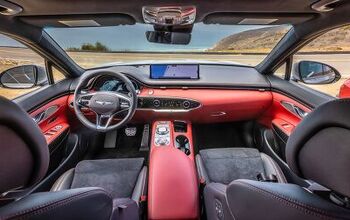

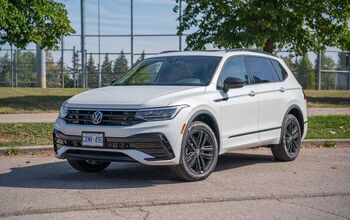

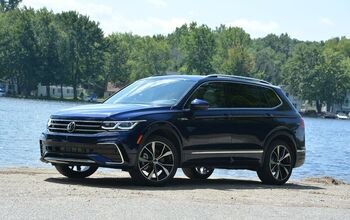
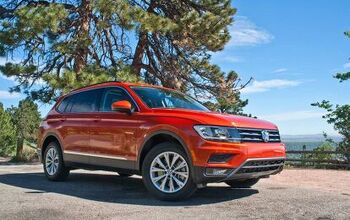
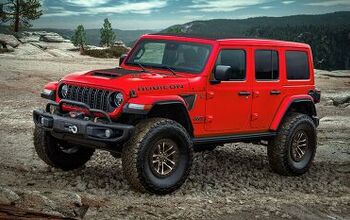
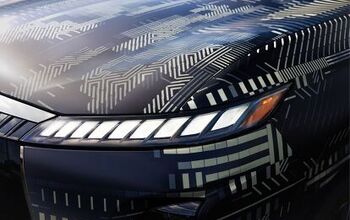



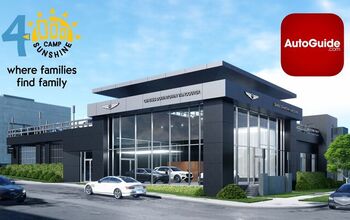
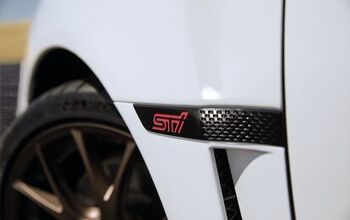

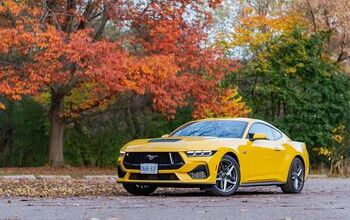

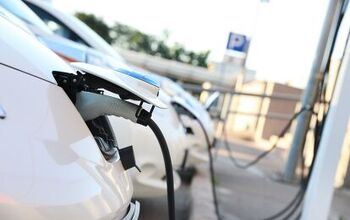
Comments
Join the conversation